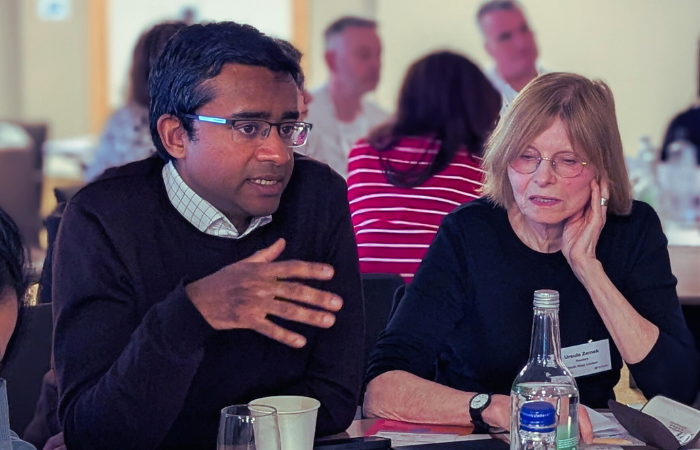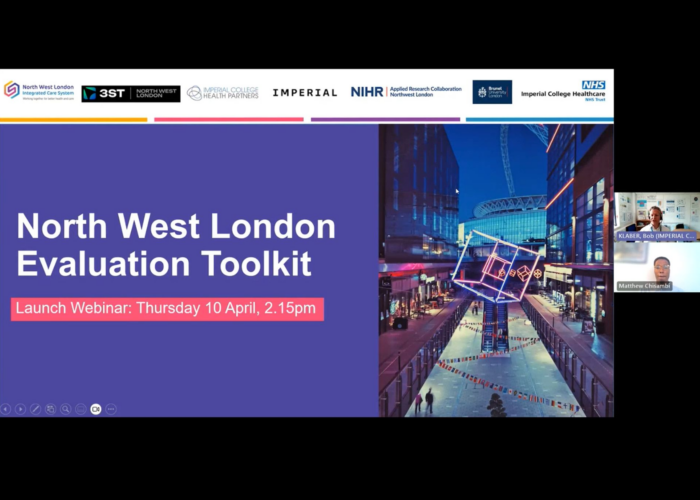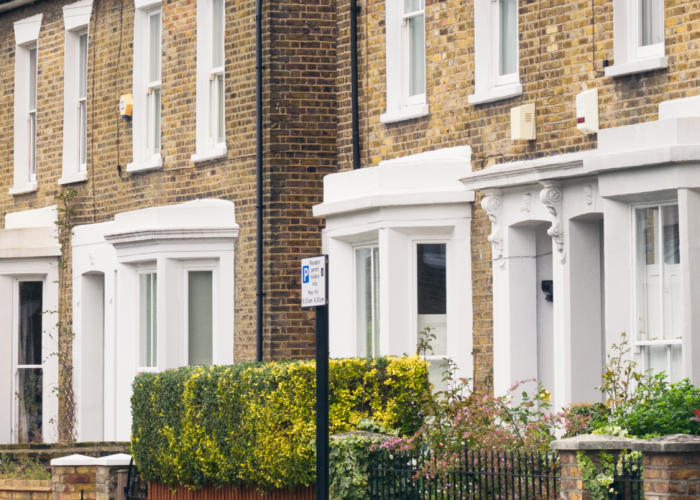
North West Londoners have taken part in a series of deliberations to set clear expectations about how the value of using health data for research is realised and distributed, published today.
Discover-NOW, Health Data Research Hub for Real World Evidence, one of the UK’s seven Health Data Research Hubs, has today published findings from its second Citizen Advisory Group (CAG). This Group has been formed as part of the Hub’s commitment to engaging patients and the public in a meaningful and authentic way to ensure trusted use of data as part of the recommendations from OneLondon’s Citizen Summit on ‘Public deliberation in the use of health and care data’.
The group of 40 citizens, recruited to reflect the diverse North West London population, have met over four separate virtual workshops in a set of mini-deliberations to explore, discuss and deliberate key dilemmas facing Discover-NOW and to help inform its next steps.
The second of these deliberations, took place virtually in May over two workshops focused on how the value of Discover-NOW’s health and care data for research should be realised and distributed. The group heard from experts, reviewed case studies and then deliberated the trades off for the distribution of any future surplus and potential alternative value exchange models.
A citizen partner of Discover-NOW, John Norton, who was part of the CAG steering group design reflected:
“I firmly believe in health data being used responsibly for research into treating and preventing disease, but this is only possible if we have the support, confidence and trust of our communities. Through examples of involvement like Discover-NOW’s CAG we have clear recommendations and expectations from the public, only possible through engaging in meaningful and trustful ways.”
Expectations on surplus
The findings from this latest CAG will be used to inform and decide how any future surplus of Discover-NOW should be distributed. Currently any funds generated from accessing data are used to recover costs from initial investments, in the future there may be a surplus generated and Discover-NOW wants to ensure any surplus and valued gained is used in line with public expectations. Three clear and consistent underlying principles emerged from the CAG on how any future surplus should be distributed alongside their expectation on what should happen to that surplus whether it was potentially large or small.
Expectations on fair value
First and foremost, any agreements made about the value of working with Discover-NOW are for the benefit of the public. The citizens were asked to deliberate in more detail a range of options about what should be in place to make these benefits, whether financial, social or economic, fair. The CAG had clear expectations on the value exchange options for Discover-NOW including principles for upfront fees, pricing models and how restrictive agreements should be.
Amanda Lucas, Operations Director, Discover-NOW Health Data Research Hub for Real World Evidence said:
“At a time when the use of health data for planning and research hasn’t been further up the policy agenda and subject to national debate, I am proud of Discover-NOW working with our local population to drive honest, frank conversations and to openly embrace the complexities and issues raised. This demonstrates the power and effectiveness of informed conversation to explore peoples expectations and to involve them in genuine decision-making. The public have given us a clear steer on their expectations on ensuring fair value and distribution of any surplus derived from the use of Health and Care data”.
Discover-NOW is continuing to work across London and with the other Health Data Research Hubs nationally to ensure that these findings are now shared on a larger scale.
The first of these deliberations took place earlier in April and focused on the controls that should be in place for non-NHS partners such as universities, industry and charities to have access to health and care data in a Trusted Research Environment (TRE).



